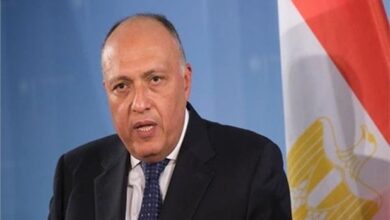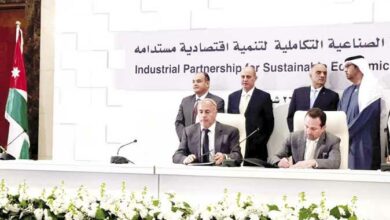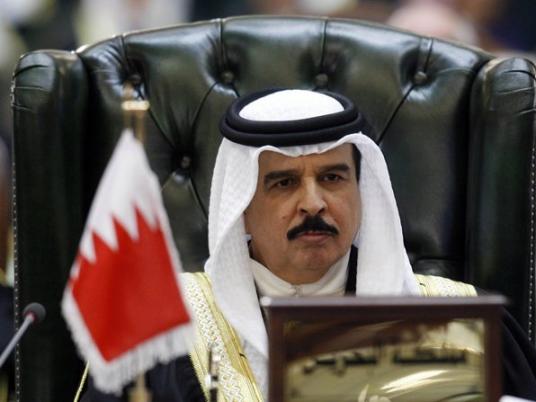MANAMA, Bahrain— Tens of thousands of protesters chanting "Bahrain is not for sale" jammed a major highway Friday to denounce proposals for closer unity between the unrest-torn Gulf kingdom and neighboring Saudi Arabia.
The rally's large turnout — demonstrators stretched for more than five kilometers (three miles) along a main highway — underscored the strong backlash to efforts by Bahrain's rulers to integrate key policies such as defense and foreign affairs with their powerful Saudi neighbor.
Riyadh has aided Bahrain's embattled Sunni monarchy with troops and money during the island nation's 15-month uprising.
Leaders for Bahrain's majority Shiites call the unity proposal a sellout of the country's independence and an effort to give Saudi security forces a stronger hand in crackdowns in the strategic island kingdom, which is home to the U.S. Navy's 5th Fleet.
Gulf Arab leaders earlier this week delayed any decisions on seeking greater unity among members of the six-nation Gulf Cooperation Council. Some members, such as the United Arab Emirates, also have raised questions about whether closer GCC cooperation would give too much power to Saudi Arabia.
Crowds streaming along a highway outside Bahrain's capital Manama on Friday chanted slogans, such as "No unity, no unity," and "Bahrain is not for sale."
Bahrain has been hit by near daily protests and clashes since the Shiite-led uprising began in February 2011 inspired by revolts in other Arab countries. Opposition groups seek a greater Shiite political voice in the Sunni-ruled nations. At least 50 people have died in the unrest in Bahrain, where a Saudi-led Gulf force came to the aid of the ruling dynasty last year.
There were no immediate reports of violence from Friday's march.
Bahrain's leaders have blamed Shiite power Iran for encouraging the uprising, although there has been no clear evidence to support the charges. Still, many Iranians have expressed sympathy with Bahrain's Shiites and Iranian officials have sharply criticized the Saudi-led military intervention in Bahrain.
In Tehran, a government-backed march Friday decried the proposed unity pact. The protest leader, cleric Kazem Sedighi, said the proposed Saudi-Bahraini accord is an "ominous conspiracy" aimed at the "annexation" of Bahrain by Saudi Arabia, the main regional rival for Iran.
"Bahrain and regional nations, as well as the Muslim world and the Iranian nation will never accept the conspiracy," Sedighi said.
Iranian state television said similar rallies took place in other cities and towns in Iran, with thousands participating.
Many nationalist and hard-line conservatives in Iran consider Bahrain, which gained independence from Britain in 1971, as a rightful part of the Iran — as it was before it fell under British colonial rule.
Until the Western-backed Shah Mohammad Reza Pahlavi was toppled by the 1979 Islamic Revolution, Iran kept two empty seats in its parliament for representatives from "Bahrain province."




